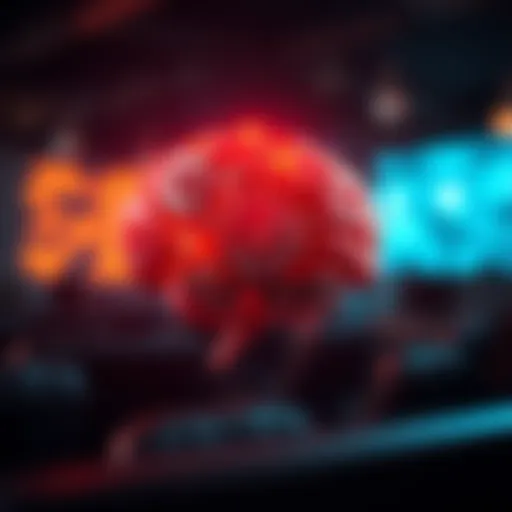Essential Historical Literature: A Thoughtful Guide


Intro
In a world moving at breakneck speed, history often takes a backseat. Yet, understanding our past is essential for navigating the complexities of modern life. Historical literature provides a rich tapestry of insights, helping us connect with the pivotal moments and figures that have shaped our societies. This guide will shine a light on significant historical works that not only entertain but also educate, offering us the chance to reflect on the human experience from various perspectives.
Literature from different eras presents diverse viewpoints, allowing us to understand the motivations and contexts behind critical events. Whether it's a firsthand account of a war, political discourse, or social commentary, literature can be the window through which we view history. As we explore these texts, we find not just stories of subjugation and triumph but also profound lessons that remain relevant today.
Let’s delve deeper into the key lessons embedded in these works, unraveling their wisdom and how they can inform our contemporary lives.
Understanding Historical Literature
Historical literature is more than just a collection of dates and events; it’s the beating heart of our collective memory. It allows us to travel through time and gain insights into civilizations, triumphs, and failures of humanity. The importance of understanding historical literature in this article is manifold. First, it brings to light how our past shapes current realities. Each author's pen translates the complexities of their era into narratives that can teach modern readers invaluable lessons.
The exploration of historical literature goes beyond mere content; it encourages critical thinking, providing readers with the analytical skills necessary to question sources and narratives. By engaging with different texts, we forge connections with diverse cultural perspectives, enhancing our global understanding. The richness of historical literature allows us to see the threads of human experience woven through various epochs, reinforcing our shared humanity amid differences.
Defining Historical Literature
In its essence, historical literature is a genre encompassing various forms, including non-fiction accounts of history, biography, memoirs, and even novels set in historical contexts. However, defining it strictly can be challenging since the lines often blur between fantasy and reality. What fundamentally ties these works together is their grounding in actual events or periods.
Historical literature doesn’t just recount what happened; it interprets those occurrences, shedding light on the implications for society at large. For example, a book like "The Diary of a Young Girl" by Anne Frank captures live history, presenting personal experience against a backdrop of global conflict. Here, the aim is not only to inform but also to evoke empathy and understanding in readers.
Importance of Historical Context
Historical context is paramount in evaluating and appreciating literature. Without understanding the circumstances under which a work was created, its significance may remain obscured. This context includes the political, social, and economic climates influencing the narrative. Take the works by Charles Dickens, for instance. His novels often reflect Victorian society’s stark social disparities, thereby providing insight into the period's complexities.
"Historical context is like the frame of a painting; without it, the picture lacks depth and meaning."
By studying these contexts, readers can grasp why authors made particular choices and how those choices resonated with their audiences. This realization enhances our comprehension and appreciation of historical texts and their authors.
Grasping the importance of historical literature means understanding the stories rooted within real human experiences. These texts serve as bridges connecting past and present, making them essential to any intellectual inquiry.
Influential Historical Books
The realm of historical literature houses many influential works that not only chronicle events but also serve as crucial gateways to understanding the human experience across varied epochs. These books have the unique ability to resonate through time, continuously shaping societal thoughts and ideologies. As we traverse this literary landscape, it becomes apparent that such works offer more than just facts; they provide perspectives that can enhance our own understanding of both history and the modern world.
Their significance lies in their capacity to foster empathy, offering readers a peek into the lives, struggles, and beliefs of those who came before us. Engaging with these narratives enables one to draw parallels between past and present, reinforcing the idea that history is not merely a sequence of events but a rich tapestry of experiences.
Additionally, influential historical books often become pivotal in defining cultural identities, setting the stage for discourse on ethics, morality, and societal values. By exploring these texts, readers are prompted to grapple with the complexities of human behavior and the chaos of historical circumstances.
Classical Works
Diving into the pool of classical works, one encounters names like Herodotus and Thucydides who crafted narratives that laid the blueprint for historical writing. Herodotus, known as the 'Father of History', weaved stories from various cultures, giving modern readers insight into the ancient world’s complexity. His approach not only chronicles wars but also delves into everyday life, making history feel tangible and relatable.
Thucydides, on the other hand, shifted the narrative's focus toward a critical analysis of political power, shedding light on the nature of human conflict and governance. His writing in "The History of the Peloponnesian War" isn't just a recounting of events; it’s a philosophical inquiry into the motivations behind human actions.
Furthermore, the works of classical authors like Virgil and Tacitus bring forth texts that reflect the social and moral dilemmas of their times, affording readers insight into the values and struggles that shaped their cultures. Such classical literature remains relevant as it frames the continuing discussion on power, ethics, and humanity, allowing modern readers to assess their own contexts with a historical lens.
Modern Interpretations
Shifting gears to modern interpretations, one discovers texts that employ history as a platform for broader commentary on contemporary issues. These books strive to unravel complex narratives through various methodologies, from exhaustive research to narrative storytelling.
Books such as "Sapiens: A Brief History of Humankind" by Yuval Noah Harari turn a reflective eye toward evolution, questioning what it means to be human in the light of societal advancements. Harari presents historical milestones, weaving them with modern dilemmas that spurs reflection on our trajectory as a species.
Similarly, "A People's History of the United States" by Howard Zinn challenges traditional narratives, giving voice to the often ignored perspectives of everyday people. This has become essential reading for those seeking a more nuanced understanding of American history.
In the modern context, these interpretations do not merely recount events; they invite readers to engage critically with the past and its implications for the present and future. This synthesis of history and relevance speaks volumes in our current discourse, advocating a more inclusive approach to historical narratives.


"History is not just about the past; it's a lens through which we ensure a more informed future."
Engaging with these influential works not only informs knowledge but sparks conversations that could ultimately lead to a more conscientious society. Thus, the exploration of historical literature is not just an academic endeavor; it's a journey of understanding ourselves and the world around us.
Top Historical Books for Insight and Knowledge
Engaging with historical literature can be a transformative experience. The books that carve the path of history offer not just facts, but evoke the feeling of the times, creating a lively interface between the past and present. The Top Historical Books section emphasizes essential readings that foster a deeper comprehension of various epochs, societal changes, and the very essence of being human. These texts become repositories of wisdom, serving as lenses through which one can examine the intricate tapestry of cultural shifts, pivotal events, and the human condition itself.
Each of the books highlighted here brings its unique lens, inviting readers to reflect on not just the events described, but their implications for understanding today's world. Whether you are a student, educator, entrepreneur, or lifelong learner, diving into these works will enhance critical thinking and provoke inquiry into the core elements of human societies.
The History of the Peloponnesian War
Written by Thucydides, The History of the Peloponnesian War stands as a pillar of historical writing. This account of the struggle between Athens and Sparta not only records events but also unpacks the raw mechanics of power dynamics, political intrigue, and human nature. Thucydides offers an analysis that transcends his time, diving into themes of morality and the consequences of war. His narrative challenges readers to contemplate the motivations behind actions, analyzing how fear, honor, and interest move individuals and states alike.
"The strong do what they can and the weak suffer what they must."
This work is profound, illustrating how conflict often sheds light on the inherent flaws of humanity; one might say it’s a mirror reflecting our own political frailties today.
Sapiens: A Brief History of Humankind
Yuval Noah Harari’s Sapiens offers a sweeping narrative of human history from the emergence of Homo sapiens to our present age. The book adeptly tackles complex subjects like evolution, societal organization, and technological advancements, rendering them digestible for the average reader. By weaving together insights from anthropology, history, and economics, Harari forces readers to confront the foundational myths that bind societies.
The accessible prose makes the expansive theme relatable, posing questions like: What does it mean to be human? What paths has humanity taken that may influence its future ties? Thus, Sapiens isn't just a recounting of history, but a catalyst for self-reflection in the reader.
A People's History of the United States
Howard Zinn’s A People's History of the United States navigates an alternative perspective on American history, centering the narratives of marginalized groups often sidelined in traditional histories. By chronicling experiences of Native Americans, African Americans, women, and laborers, Zinn’s work urges readers to consider varied accounts that shape the collective identity of a nation.
Zinn’s premise fundamentally reshapes how one views history, inviting a critique of how authority shapes narratives. This book is essential for anyone in pursuit of a more inclusive understanding of America's past and its continual impact on present society.
Guns, Germs, and Steel: The Fates of Human Societies
Jared Diamond's Guns, Germs, and Steel provocatively examines the environmental and geographical factors that have driven the disparate fates of human societies. By dissecting why certain civilizations thrived while others faltered, Diamond's study reveals the complex interplay between agriculture and disease, technology, and conquest. This work challenges the notion of racial superiority often attributed to historical successes, thrusting the conversation into a more nuanced realm of discussion about environmental determinism and societal advancement.
This thought-provoking read catalyzes a necessary dialogue about the broader patterns of history and the factors that lead to societal differences—pointing us to the fact that geographic factors often outweigh the role of individuals in shaping history.
The Diary of a Young Girl
Anne Frank's The Diary of a Young Girl remains an extraordinary testament to the resilience of the human spirit amid horrendous adversity. Capturing her experiences while hiding during the Nazi occupation of the Netherlands, this diary provides profound insights into the fears, hopes, and thoughts of a young girl in extraordinary circumstances. While it recounts the trivialities of daily life during war, it also sheds light on the psychological impacts of war and circumstances of oppression.
Frank’s narrative enables readers to empathize with individuals affected by historical events, elevating history from just dates and facts to a human experience filled with emotion. It challenges readers to remember the individual stories behind the horror, further urging one’s commitment to humanity in the face of cruelty.
Through these texts, readers can appreciate the multifaceted nature of history and consider the lessons embedded within these narratives that shape our current society. This curated selection of books reminds us that history is not merely a collection of facts; it is a living conversation between the past, present, and future.
Historical Fiction as a Tool for Understanding
Historical fiction serves as a bridge between the past and present, inviting readers to explore complex societal issues through the lens of story. Unpacking historical narratives in a fictional setting allows for a unique interpretation of events that might otherwise seem distant or abstract. It breathes life into dates and figures, engaging readers in a way that analytical texts often lack. The beauty of historical fiction lies in its ability to immerse individuals deeply into the human experience of a specific era, helping them to not just learn about history, but to feel it.
Through richly developed characters and intricate plots, historical fiction can humanize the past. Readers encounter personal struggles, feelings, and motivations, which often mirror contemporary dilemmas. This connection fosters empathy and understanding, making historical events relatable and relevant. In this manner, fiction becomes a powerful tool for understanding not only what happened in history but also why it matters today.
Characteristics of Historical Fiction
To appreciate the depth of historical fiction, one must understand its various characteristics. Here are some key elements:
- Strong Historical Context: Authentic depiction of the period is paramount. Authors extensively research the era's customs, attire, and social dynamics, ensuring the narrative is believable.
- Complex Characters: Characters are often crafted with layers, echoing the profound complexities of human nature. They represent various viewpoints and experiences, enabling readers to gain a multifaceted view of history.
- Interweaving Fact and Fiction: The best historical fiction balances factual history with imaginative storytelling. While events may be dramatized, the core truths of human experiences are maintained.
- Thematic Depth: Many works delve into universal themes like love, conflict, and resilience. They resonate across time, connecting the reader to broader human conditions.


Overall, historical fiction not only shapes the narrative but also invites discourse about the implications of those narratives in a modern context.
Notable Historical Fiction Works
There is a wealth of historical fiction that enriches our understanding of the past, here are a few noteworthy titles:
- "The Book Thief" by Markus Zusak: Set in Nazi Germany, this compelling narrative highlights the power of words and storytelling during tumultuous times. Through the eyes of a young girl, readers witness the nuances of humanity amidst despair.
- "All the Light We Cannot See" by Anthony Doerr: This tale navigates World War II, intertwining the lives of a blind French girl and a German boy. Their stories expand on themes of fate, love, and the small choices that define humanity.
- "The Nightingale" by Kristin Hannah: It tells the story of two sisters in France during WWII, showcasing the different paths individuals often take in the face of adversity. It raises the question of what it means to be courageous in overwhelming circumstances.
- "Wolf Hall" by Hilary Mantel: This is a masterful exploration of Thomas Cromwell's rise to power in the Tudor court. It delves deep into political machinations, shedding light on historical figures often reduced to mere footnotes in history.
- "The Other Boleyn Girl" by Philippa Gregory: It presents a personal insight into the life of Mary Boleyn, exploring court life and the fierce competition for royal favor. This book emphasizes the role of women in history, an angle often overlooked.
Each of the above works not only entertains but educates, prompting readers to engage with historical realities in a more profound way. They remind us that the past, while factual, can be richly interpreted and understood through the realm of human expression.
Evaluating Historical Narrative Techniques
Understanding how historical narratives are crafted is paramount for anyone diving into the depths of historical literature. The techniques employed in narrating a story can drastically affect how events, characters, and periods are perceived. Recognizing these techniques not only enriches enjoyment but also deepens one’s comprehension of the nuanced tapestry that history weaves. It encourages readers to think critically about the perspectives presented and the choices made by the authors in framing historical events.
Engaging with various narrative techniques helps illuminate aspects of human experience, revealing biases and motivations that may otherwise remain hidden. For instance, the choice of perspective—whether first-person or third-person—can significantly influence how facts are interpreted. Likewise, whether the narrative unfurls in chronological order or leaps between timelines can alter a reader's emotional or intellectual engagement with the material.
In essence, these techniques serve both as a lens to explore the past and a foundation for shaping our understanding of enduring themes in history—how cultures evolve, societies react, and individuals confront their circumstances over time.
First-Person vs. Third-Person Perspectives
The narrative perspective chosen in historical literature holds weight, especially considering how it influences readers’ connection to the text. First-person perspectives offer an intimate glimpse into the feelings and thoughts of the narrator. When an author chooses to recount events from their own viewpoint, it plunges the reader directly into the experience, creating a personal bond with the material.
Take, for example, Anne Frank's The Diary of a Young Girl. Her first-person account of life in hiding during the Holocaust captures raw emotions and the harsh reality of wartime living. This perspective allows the audience to not only understand the historical context but also empathize on a personal level.
Conversely, third-person narrative can provide a broader scope. This approach allows an author to weave multiple viewpoints together, offering a panoramic view of events. Yet, it can lack the immediacy of first-person accounts. Works like War and Peace by Leo Tolstoy illustrate complex interactions among characters, showcasing historical change while allowing the reader to remain somewhat detached from individual narratives.
Deciding between these perspectives often boils down to the author’s goal—is the intent to elicit empathy, or to present an objective analysis of events? Understanding these choices can enhance appreciation for historical texts.
Chronological vs. Non-Linear Storytelling
Narrative structure is a key building block in historical literature, and it can take various forms that shape a reader’s experience. Chronological storytelling unfolds events in a sequential manner, allowing readers to place incidents in a clear timeline. This method is often accessible, making complex histories easier to digest.
In contrast, non-linear storytelling might jump back and forth in time, presenting events out of order. This can create suspense, challenge conventional understanding of cause and effect, and even mimic the way human memory works. A fine illustration of this can be seen in books like One Hundred Years of Solitude by Gabriel García Márquez. Its fluid timeline reflects the cyclical nature of history and memory in a magical realist context.
Each technique has its strengths and serves different purposes. Readers benefit from recognizing these differences as they explore diverse narratives, enriching their understanding of the historical landscape being depicted.
"The past is never dead. It's not even past." – William Faulkner
Ultimately, engaging with historical narrative techniques paves the way for a multi-dimensional understanding of both individual texts and the historical events they recount.
Lessons from Historical Literature
Historical literature is more than just a collection of books gathering dust on a shelf. It serves as a mirror reflecting the experiences, values, and beliefs of different societies across time. Through engaging with these texts, we can uncover significant lessons that speak to our own human condition—the emotions, struggles, and triumphs that define us.
Understanding cultural nuances embedded in historical literature allows readers to grasp the multifaceted nature of humanity. Each era presents its own flavor of challenges and wisdom, giving insight into how societies have evolved. By examining various texts, one can better appreciate the root causes of current social dynamics, aiding in cultivating empathy and awareness in today’s fast-paced world.
Moreover, historical literature encourages comparative analysis of different eras. It highlights patterns that recur throughout history. For instance, the themes of power, class struggle, and interpersonal relationships often span across various cultures and epochs. Recognizing these correlations may aid us in understanding the complexities of modern political and social landscapes.
Understanding Cultural Perspectives
One key aspect of lessons derived from historical literature is the comprehension of cultural perspectives. Reading works from diverse authors allows writers to grasp the complexities of human experiences. Each work is rooted in its own context and is colored by the social, economic, and political backdrop of its time.
For instance, texts from colonial periods, such as Chinua Achebe’s Things Fall Apart, provide insight into the clash between traditional African societies and European imperialism. This can help readers reflect on the long-lasting effects of colonization and develop critical thinking about current geopolitical issues.
Each narrative serves as a stepping stone to understanding, breaking down barriers formed by misunderstanding or ignorance. Individuals become more thoughtful, and society benefits when cultural appreciation seeps into the collective consciousness. By reading widely and embracing different viewpoints, we can develop a more nuanced worldview.


Comparative Analysis of Eras
Historical literature offers rich ground for comparative analysis of eras. By juxtaposing works from different time periods and cultures, a fuller picture of the human experience emerges. For instance, examining the philosophical underpinnings of the Enlightenment in texts like Rousseau’s The Social Contract alongside modern commentaries on democracy can highlight how thought processes evolve yet often circle back to the same themes.
Engaging with these narratives lays bare the perennial nature of many societal issues. A reader may notice how discussions on social justice and equity, prevalent in both the Declaration of the Rights of Man and of the Citizen and modern-day works on civil rights, resonate across time.
- Themes of Empowerment: Empowerment and the quest for individual rights remain highly relevant today.
- Socio-economic Challenges: Economic disparities and class struggles echo through the centuries.
- Interpersonal Dynamics: Human relationships, though culturally specific, reveal universal truths about love, conflict, and community.
The Role of Historical Books in Personal Development
Historical literature serves as a potent vessel for personal growth, enriching the mind and shaping character. When one immerses in historical narratives, they are not merely absorbing dates and events; they are stepping into the shoes of countless individuals who have walked the earth before us. This tangible connection to the past allows readers to cultivate a nuanced understanding of the world and themselves.
Fostering Critical Thinking
Engaging with historical texts can essentially train the mind to think critically. Readers are often confronted with complex situations where actions have consequences, perspectives vary, and motivations intertwine. For instance, when one reads about the impact of the French Revolution, it prompts more than just a recount of events; it encourages an examination of the societal structures that led to upheaval. Questions arise: What were the causes? How did different classes perceive the events?
By actively pondering these questions, readers sharpen their analytical skills. They learn to evaluate sources, consider biases, and question narratives—an invaluable skill set that resonates in today’s information-saturated world.
"The past is not dead; it is not even past." — William Faulkner
Inspiring Change and Action
Historical works often illuminate paths of resilience and transformation. Books like "A People’s History of the United States" do more than present facts; they spotlight voices that have been silenced or overlooked. As readers encounter the struggles and triumphs of others, they may feel a stirring within themselves, motivating them to act in the present.
These texts can serve as catalysts for social awareness and activism. By understanding previous injustices, individuals may feel propelled to advocate for current issues, whether that involves participating in community initiatives or standing up against inequality. In this sense, historical literature is not just a record of events; it becomes a blueprint for navigating today’s challenges, accentuating how one person’s story can influence the broader narrative.
Accessing Historical Literature through Libriperx
Accessing historical literature has never been easier, especially with the rising importance of platforms like Libriperx. This online library not only provides a wealth of resources but tailors historical works to fit the fast-paced lives of busy professionals and lifelong learners. In a world full of distractions, having a focused repository for accessing significant texts can be invaluable for deepening one's understanding of the past.
Libriperx stands out thanks to its user-centric design, making it straightforward to navigate through an extensive selection of titles from various periods. The importance of this can’t be overstated; proper access to nuanced historical literature empowers individuals to learn about context, perspectives, and events that shape our world.
Navigating the Platform
Libriperx is structured to facilitate ease of use. Users are greeted with an intuitive interface that simplifies the search process. Historical texts can be categorized by genres, epochs, and authors. For example, a novice may find it helpful to browse works from the Renaissance period or focus solely on World War II literature.
In addition, the platform features a search bar that allows users to input specific queries, ensuring that even the most niche topics can be explored. An advanced filtering system also helps narrow results down to key themes or dates. Ultimately, this efficient navigation means users can spend less time searching and more time absorbing critical information.
Benefits of Book Summaries
One of the standout features of Libriperx is its emphasis on providing concise book summaries. This is particularly beneficial for those who lead hectic lives and may not have time to read full texts. These summaries offer essential insights and are crafted to distill the main arguments and themes found in significant historical works.
- Time-efficient: Summaries allow readers to grasp core ideas quickly.
- Contextual understanding: They provide a rich overview that enriches one's understanding of the text without missing important contexts.
- Shared learning: Summaries can be shared easily, promoting discussions among peers or in educational settings.
"To learn from history is to engage with its narratives deeply. Libriperx facilitates this interaction efficiently."
Final Thoughts on Embracing Historical Knowledge
Delving into historical literature opens up a world that often feels distant yet intimately familiar. This section wraps up the dialogue we began, emphasizing why embracing knowledge from the past is not only essential but also immensely enriching.
First and foremost, historical literature serves as a bridge. It connects us to our predecessors, weaving their experiences and lessons into the fabric of our own existence. Reading about the trials and triumphs faced by those before us signals that we are part of a continuum, a journey laden with victories and setbacks that shape not just societies but individual lives. This perspective allows us to draw strength from the histories that have led to our present.
Moreover, the study of history cultivates critical thinking. When we engage with diverse historical accounts, we are prompted to analyze and contrast various narratives. This not only bolsters our analytical abilities but also encourages us to ponder the nature of truth itself.
Benefits of Historical Understanding
- Broadened Perspectives: Grasping different viewpoints enables us to understand others better and empathize with their experiences.
- Informed Decision-Making: History offers invaluable lessons. Understanding past strategies and outcomes can guide contemporary choices in both personal and professional realms.
- Cultural Appreciation: Engaging with historical texts enhances our appreciation for diverse cultures and traditions, fostering tolerance and rich discussions.
Lastly, as we wrap up our exploration, it’s vital to recognize that engaging with historical literature is not merely an academic exercise. It’s a journey toward enlightenment. The stories encapsulated within these texts breathe life into dusty dates and events, transforming them into relatable experiences.
"Knowing your history is like having a map. You can navigate through the complexities of life with more confidence and clarity."
As we close this chapter, take a moment to ponder how the knowledge of history can resonate within your current circumstances. The wisdom from the past is a potent tool that lies at our fingertips, waiting to guide us.



